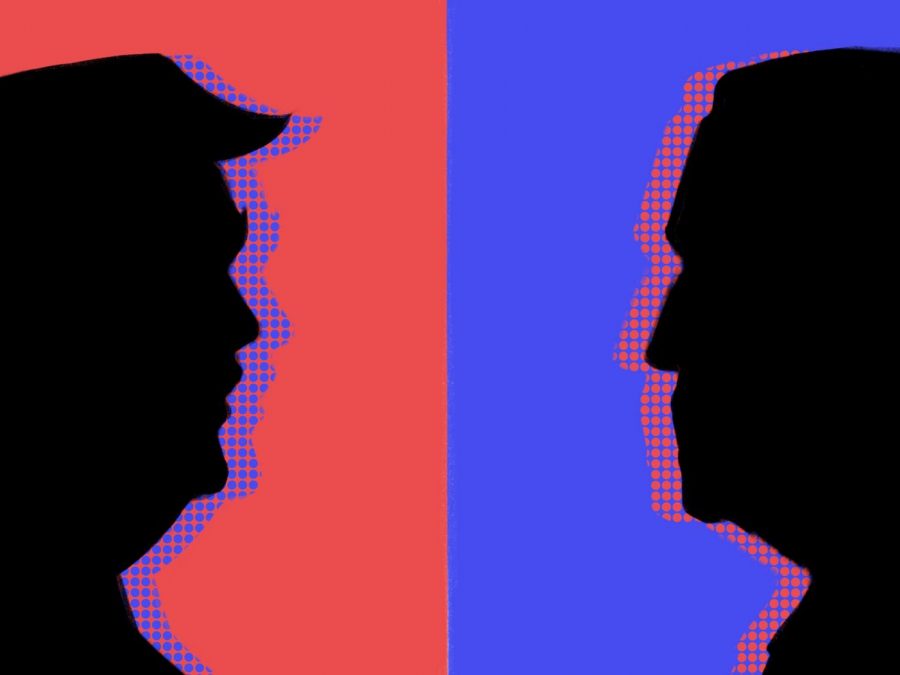2020 has been an historic year, one that will not be forgotten.
Almost 7.5 million coronavirus cases in the United States and over 200,000 lives lost. The repeated instances of injustice, which have prompted widespread Black Lives Matter protests and spurred the craving that many have for police reform. And, a scorched West Coast due to fires, some of which were driven by climate change.
Now, in less than one month, on Nov. 3, Americans will determine the winner of what some might consider the most monumental election in United States history: former Vice President Joe Biden or current President Donald Trump.
“This is an extremely important election, certainly one of the most important in our history, you could say,” social studies teacher Mr. Hugh Hegarty said. “It is important for students to be informed on the issues so that when they form their political opinions, they know what they are talking about — they can back up their opinions with evidence and with fact.”
To prepare for the election as well as its end result and aftermath, La Salle students and social studies teachers have started to discuss these topics in the classroom.
For social studies teacher Mr. Alex Lanaghan, this year’s election brings up “lots of emotions,” he said. “It is always very exciting as a social studies teacher to be able to teach during [an] election year. I remember even going all the way back to my very first years of teaching and it never gets old.”
“I am definitely also very nervous — just concerned about the outcome either way and how that’s going to play out for our country and for our students,” he said. “It has been a very divisive time period… It is hard to watch our society get torn apart so much… and I have seen that with our students [and] I’ve seen that in our classrooms.”
The first presidential debate, which took place on Sept. 29, served as an introduction to election coverage for Mr. Lanaghan, social studies teacher Mr. Michael Doran, and Mr. Hegarty, as they had some of their classes complete an assignment in relation to what was discussed.
“In regular U.S. History classes, I assigned them where they had to watch 20 minutes of the debate,” Mr. Hegarty said. “This is just to kind of gauge what they already know. Some students know these issues really well, some might have a casual interest, and [for] some it might be the first time that they have ever heard these topics before.”
“[I asked about] any prior knowledge that they may have had on the topic,” he said. “What did they learn about the topic that was being discussed and also the candidates’ views on the topic? Did they take a stand or an opinion on that topic?… And then finally, who they thought won that portion of the debate.”
In addition to learning from the presidential debates, Mr. Lanaghan said that when it comes to having these conversations, he discusses current events among his students “such as the Breonna Taylor hearing the other day and then also the death of Ruth Bader Ginsburg… These are things where I wouldn’t say it is necessarily we are talking about the election directly, but I would say that these are areas that relate to it.”
“I strive to just answer questions,” he said. “I feel like I have learned that it is better just to open it up and let students bring some of their questions to the table as opposed to me structuring something.”
Mr. Doran plans to do something similar with his students.
“I feel it is important that students learn more about what each candidate says on the issues,” he said. “While there are many to focus on, I will bring into focus the following topics as conversation starters: the economy, racial justice and equity, healthcare and the COVID-19 response, immigration, the environment, the U.S. role in the world [and] foreign policy, [as well as] the Supreme Court.”
Each teacher also emphasized on how they want to educate students on the processes that lead up to the election and determine the winning candidate.
“I place a high priority on having my students see the connection between the topics we study in class and how it relates to their lives,” Mr. Doran said. “A presidential election is history-in-the-making every four years, so I feel it is critical that students know more about how the presidential election process works, including learning about the Electoral College, so that we can graduate students who are informed citizens [and] who seek to be active political participants throughout their lives.”
Similarly, Mr. Lanaghan said, “I really just try to make sure that we understand how the process works,” he said. Regarding the Electoral College in particular, “now, I feel like students are more aware of it, but I always like to make sure that I go over that system.”
He said that he wants to “spend a little bit of time on mail-in voting as well, and just break down some of the myths and some of the expectations or practices.”
At the beginning of this school year, Mr. Hegarty covered the basics of the United States government with his students.
“We went over the constitutional requirements to run for president [and] I went over the Electoral College with them,” he said. “As we get closer and closer to the election, that is when we are going to start going over the topics more in-depth and having those discussions to see how [students] feel about them and sharing those conversations in a class setting, even if it is on Zoom.”
Moving forward and with people falling on such different extremes of the political spectrum, these teachers are also making plans to facilitate effective and thoughtful discussion.
“I will expect that students will have professional dialogue and that students can respectfully agree to disagree,” Mr. Doran said. “I think it is important to hear multiple perspectives, and I will do my best to model professional dialogue myself as we discuss the issues.”
Mr. Hegarty said that he looks forward to watching students “develop opinions on the issues, but also feel comfortable expressing their political opinions.”
“We are not all going to agree, but I want everybody to feel like they are included and that they are a part of our class [and] they are part of our school community,” he said. “We want them to feel very comfortable expressing those ideas, so that is something that definitely I look forward to hearing.”
From previous teaching experience, Mr. Lanaghan said, “I have learned you just have to stick to framing it in a matter where it is not asking people about their personal, deep-hearted belief. Oftentimes, my students will get sucked in by the more sensational items and the more outlandish stories that you hear… I really just like to stick to what are the plans [and] what are the stats.”
“It is amazing to me the lack of information that people have,” he said. “People have such a misperception of what different candidates actually did or say in the past… I try to just [say] ‘let’s bring out the facts here, people.’”
Looking ahead to the week of the election, Mr. Hegarty said, “we are going to analyze the results, we are going to take a look at the Electoral College, the popular vote, [and] see what issues the voters considered important.”
In Mr. Lanaghan’s classes, students will “definitely spend lots of time analyzing and then seeing what comes next, which is always fun,” he said. “I love the data. I love seeing the breakdown by state, by gender, by age, [and] by economics.”
Senior Luke Thompson felt strongly that “classes should talk about [the election] in context of the class itself,” he said. “It is kind of difficult for teachers not to bring it up because it is… the next big thing in the train wreck that has been this year.”
“Especially on social media, people have to be their own fact-checkers [and] they have to make sure that what they are looking at is actually accurate,” he said. “To have another resource in that — to have educators come in and maybe, potentially help some people realize that information that they are citing as evidence for their opinion is in fact reliable… This teacher should be like the mediator in the situation.”
Several students, in addition to Thompson, are individually conducting research about the election and candidates as well.
For senior Madison Fahlman-Katler, she has learned a lot from her older sister.
“My sister is really into looking at politics, so the majority of information I see [is] when she sends me articles or videos,” she said. “It is a lot of just watching [the candidates] talk or have conferences… I think it is [about] not listening to people that listen to Republicans beat down Biden because they are biased for Trump and vice versa.”
Senior Sam Robles is “trying to watch most of [the candidates’] rallies,” he said. He is also paying attention to “a lot of what they are saying in public and also online, like on forums, [about] what each party is standing for right now.”
Now that there is less than a week for Oregonians to register to vote in this year’s election, Mr. Hegarty, Mr. Lanaghan, and Mr. Doran all said that they will advertise this in class. Throughout past years, students have taken the lead on this by passing out pre-registration pamphlets in social studies classes, but with a digital learning system, they are no longer able to do so as easily.
In Mr. Doran’s Economics class, which is made up of seniors — some who are of legal voting age — he “will explain the voter registration requirement and that each state has its own rules on when a person can register to vote,” he said.
Mr. Hegarty only teaches sophomores, but he still encourages students to pre-register to vote.
“That makes it a lot easier when students turn 18 because they have already started that process,” he said.
Thompson, Robles, and Fahlman-Katler are all registered to vote in this year’s election.
“I think it is really important that if you want to have a say for what you want in your world then you should be willing and wanting to vote for that,” Fahlman-Katler said. “It is important — just educating yourself on pretty much anything in life. I want to take advantage of my rights, not that my vote, [my] one singular vote, is really going to tip the scale, but I think that that is important to learn about and talk about.”
Robles and Thompson agreed with Fahlman-Katler.
“I think that every vote counts,” Robles said. “Right now, it matters for a lot more young people to vote because that didn’t happen as much as it should have last election… I think [it is] a good way to set an example… to vote yourself.”
Thompson added, “it is really imperative that if we want to make a difference in our country with our vote that everyone who turned 18 this year before the election is able to vote,” he said. “I think that every individual vote does matter… If we want to change the direction that we’re going in right now, if we want to be able to shift away from the problems that have become exacerbated over the last four years that could have been in remission, [or] if we wanted to help, I guess, begin the healing process as it were, the first step is to vote.”
Mr. Hegarty, Mr. Lanaghan, and Mr. Doran echoed the ideas of these students — that voting matters, and that analyzing the election in class is of great importance.
“[The election] totally consumes our world right now and especially for our seniors,” Mr. Lanaghan said. “There is a handful of students who are already 18, and if they are not 18 now, well then guess what, they are going to be 18 in 2022 when we have congressional elections, which I would argue are just as much or even more important than presidential elections.”
“I really just try to plant the seed right now and have students, even if they’re not 18 yet, just to be able to see and recognize the importance of the election and the importance of voting, so that when they do turn 18 then they are that much more likely to vote,” he said. “18 to 25 year olds are the lowest, lowest area of voter turnout, and I always feel like it is my job to try and change that… it is so easy to do and so important.”
Mr. Hegarty also said that discussing the election, especially in social studies classes, is “extremely important.”
“This is what we study and we look at historical elections,” he said. “You have to tie historical events that you are learning to life today. I think relevance is especially important — students can feel that they can connect to the material. They can say ‘OK, I’m living through this time period [and] I’m forming opinions on these issues,’ just as people historically formed opinions on the issues that they were dealing with at that time that they lived.”
Mr. Doran highlighted how critical it is to stay informed “about what is happening in your country,” he said. “It is also important that people vote and participate in the political process so that their voices can be heard.”
Mr. Lanaghan said that every election year is notable, including this one.
“I feel like every election is so important and there is always different things happening,” he said. “So much again depends on the other branches… So much depends on the courts and Congress as well.”
However, Mr. Doran feels that “this year in particular, the United States seems very divided politically.”
“I think we see and feel this in many aspects of our lives,” he said. “The candidates and political parties are all so sharply divided this year in terms of their views on the issues and challenges facing our country today. To me, this makes me feel like the stakes are very high.”
Thompson said he believes that Americans have not come as far as they had initially thought — “that human basic decency is not just going to take care of itself.”
“People say that our democracy is in danger,” he said. “In 2016, I do not think I would have believed it, but now I absolutely do. I absolutely believe that this election is extremely important for our democracy and maintaining a moral, ethical way of life, and… examining the problems in the American system that we were not aware of until very recently.”
No matter the outcome of the election, Mr. Hegarty said that he is “hoping that [students] see democracy in action.”
This is what we teach,” he said. “This is what we hold true to the American ideals. This is something that makes us uniquely American and for [students] to experience that, no matter who the winner is, and to see it play out before our very eyes — that is something that I think is extremely important, for not only understanding it, but also living through it, experiencing it, and showing that this form of government that we have had for the last 200 plus years works, and that it is something that we should all appreciate as Americans.”
In harmony with Mr. Hegarty, Mr. Lanaghan said, “we just have to trust in the system and trust in the process,” he said. “This is all part of the design of our system and we have to believe in the small-d, democracy… If you did not get your way this time, well, then you work hard, and you get your word out, and you try to find candidates and positions that will work [for] next time… I’m not trying to undersell it. I’m just trying to say that this is the beginning.”
“There is so much more that happens on the ground,” he said. “There is so much more that happens beyond just that one individual person… I always try to tell students that if you weren’t happy, well, then go do something about it… I think it stresses, like I said before, the importance of voting… We want our students to be lifelong learners [and] I want our students to be lifelong voters.”
This story was originally published on The La Salle Falconer on October 7, 2020.



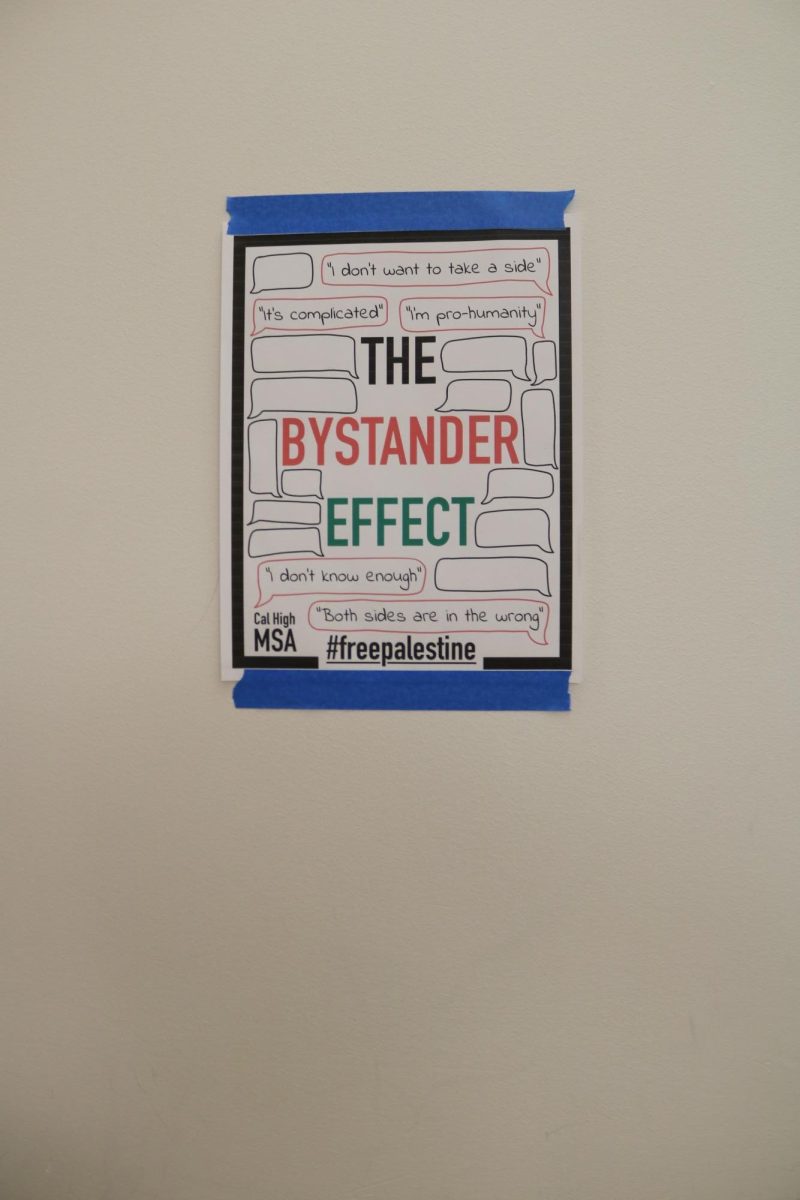
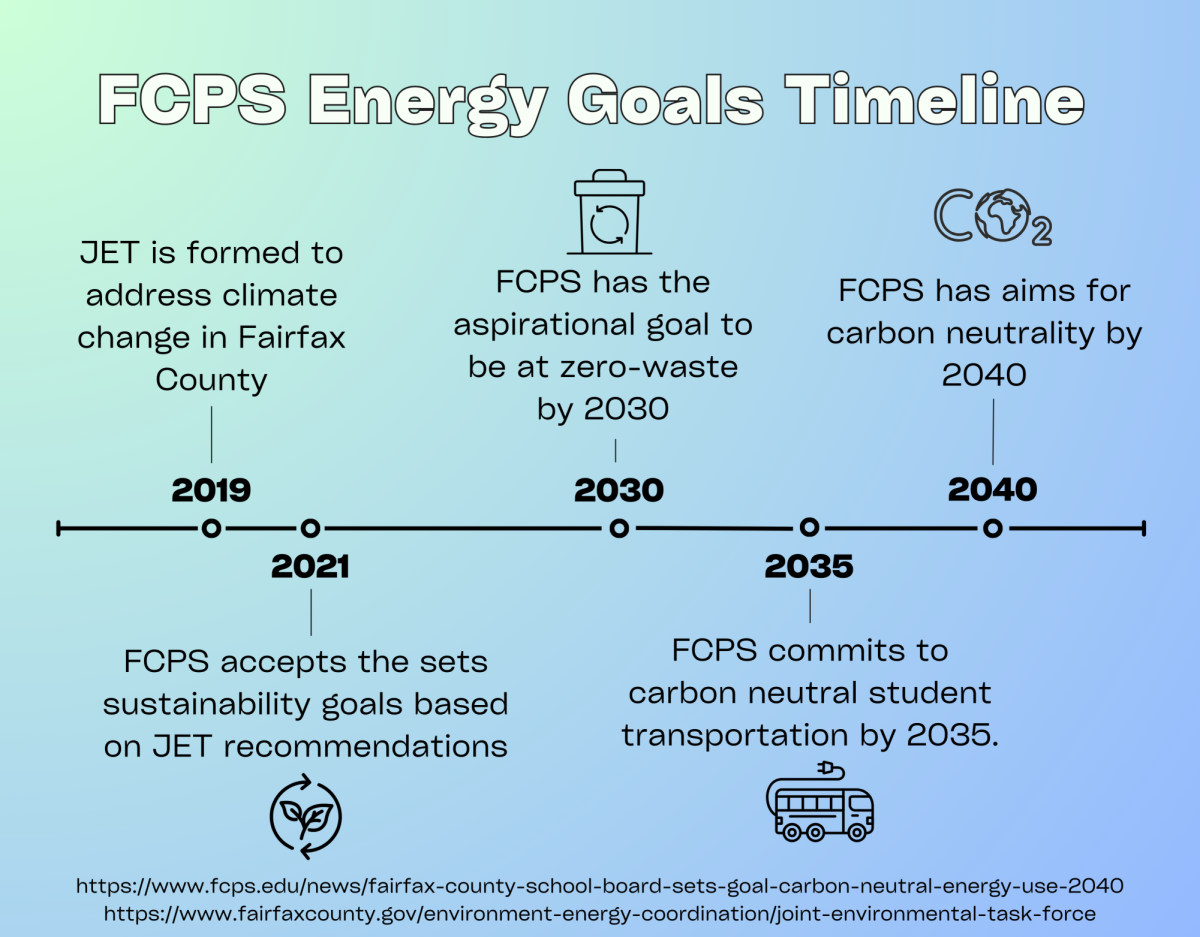




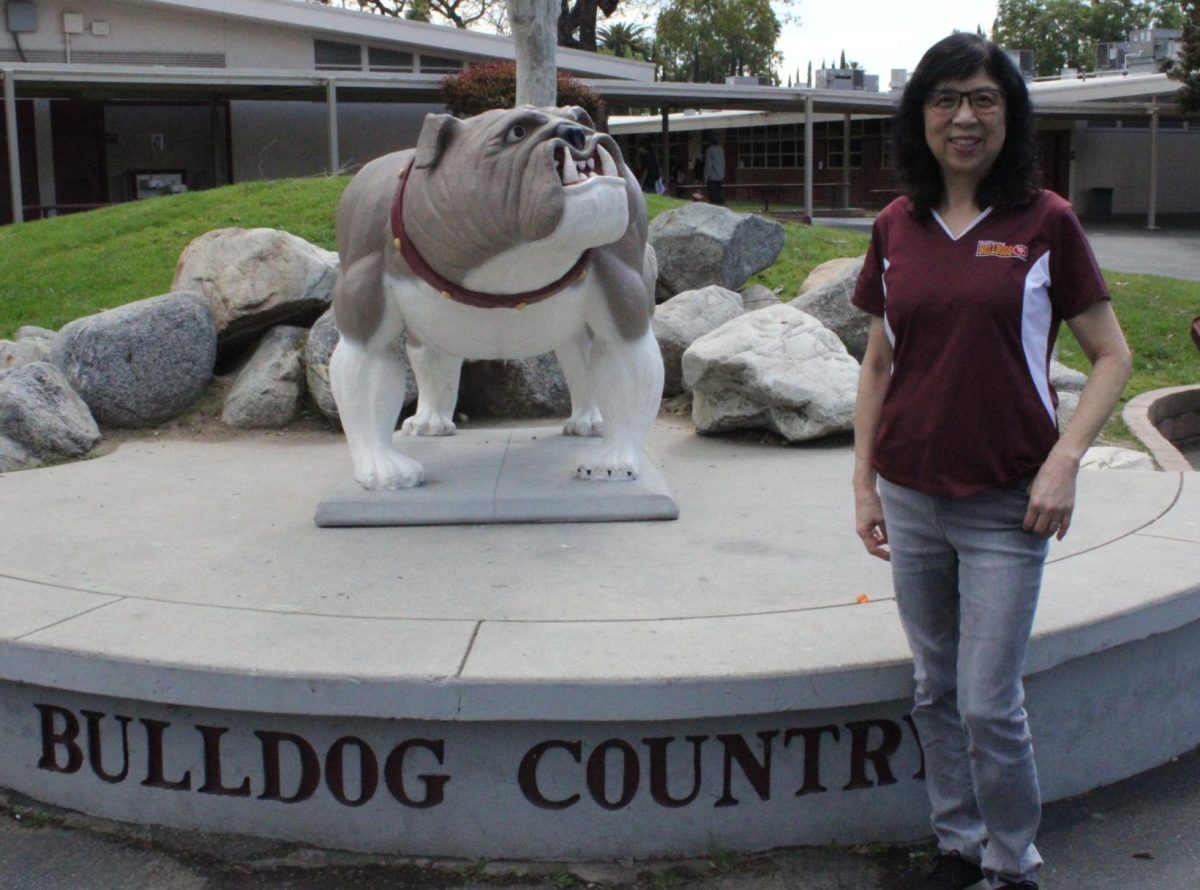


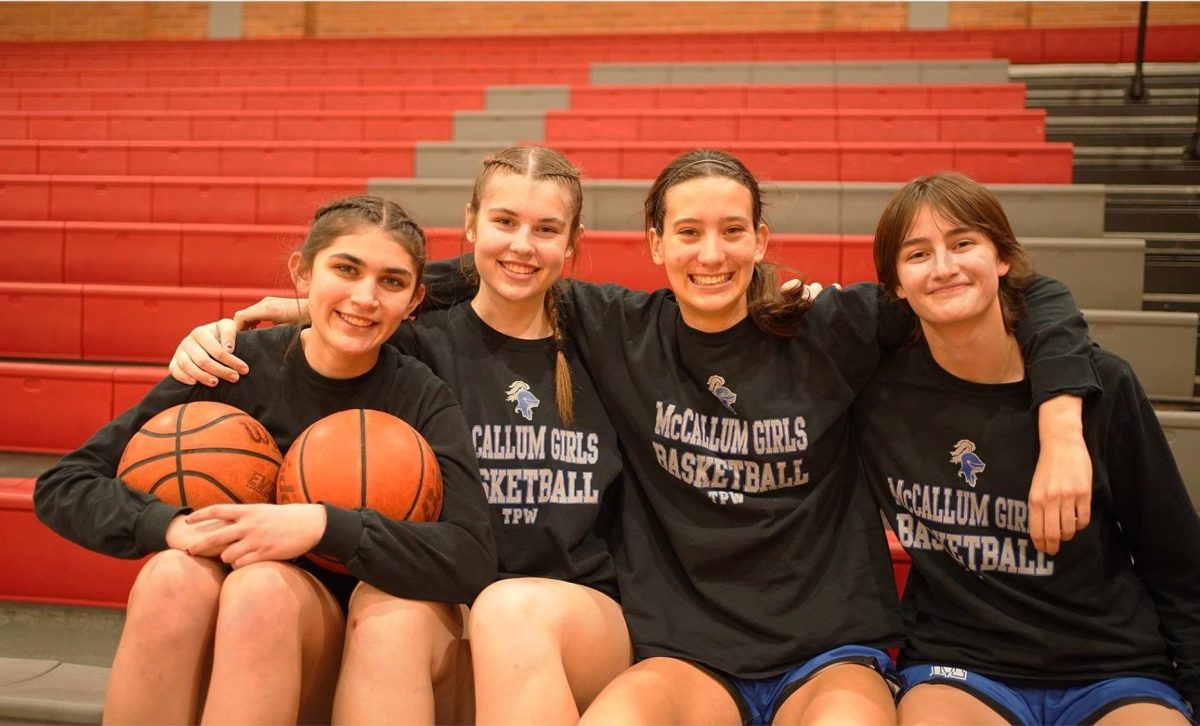
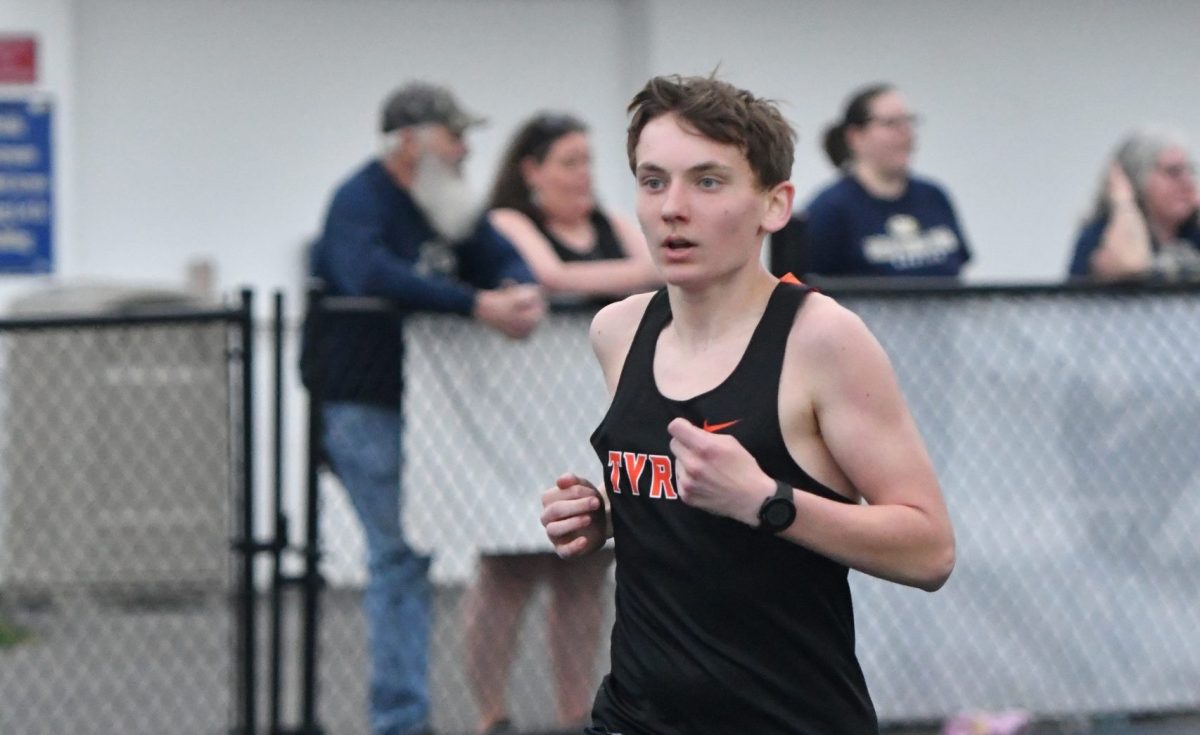

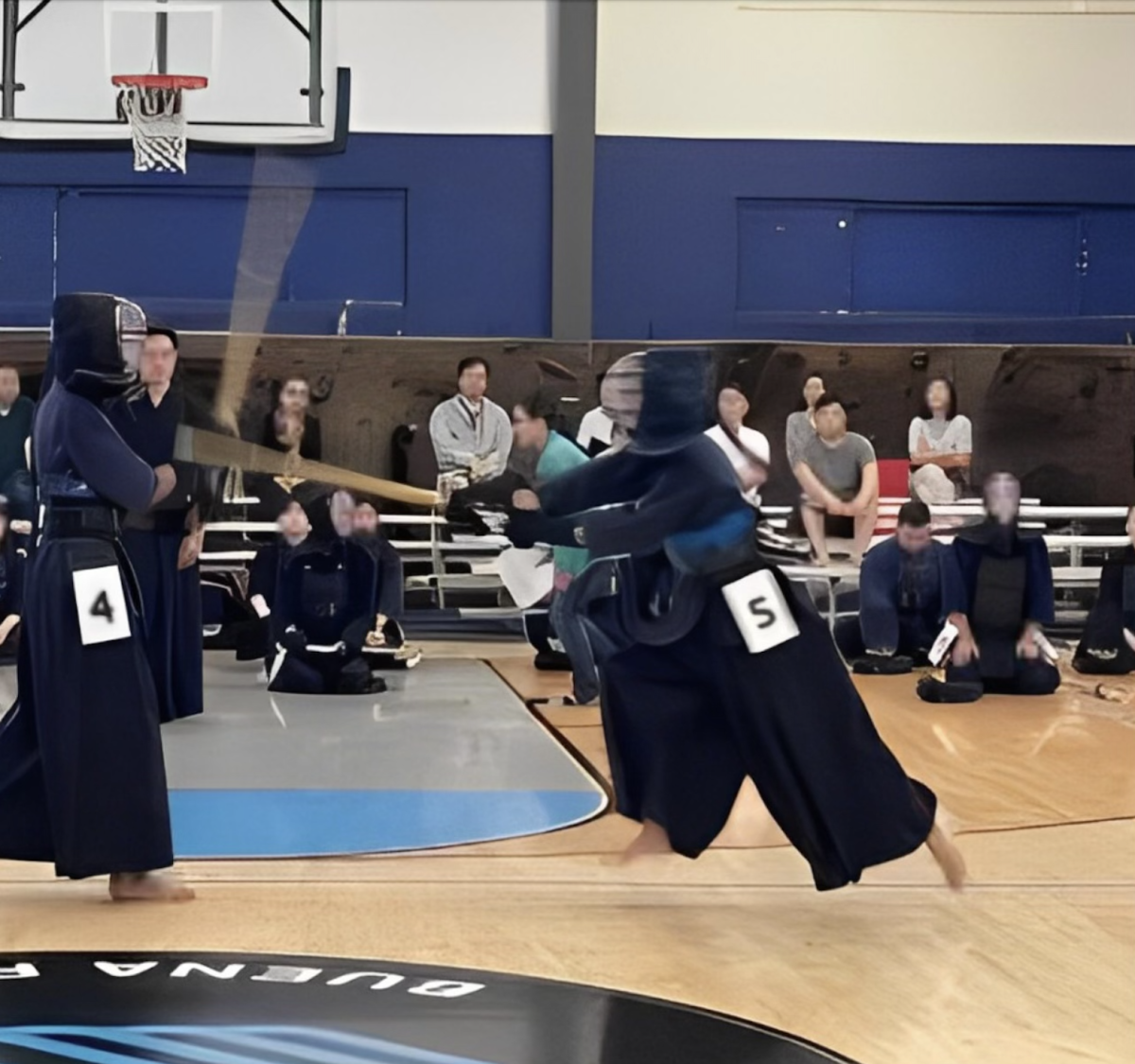
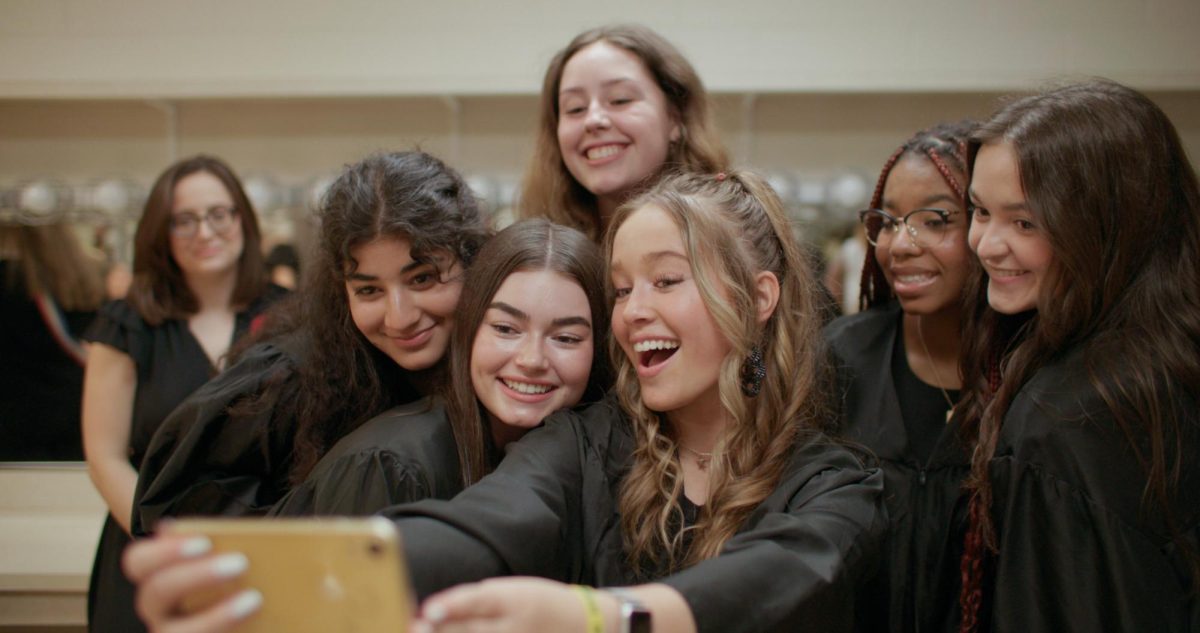
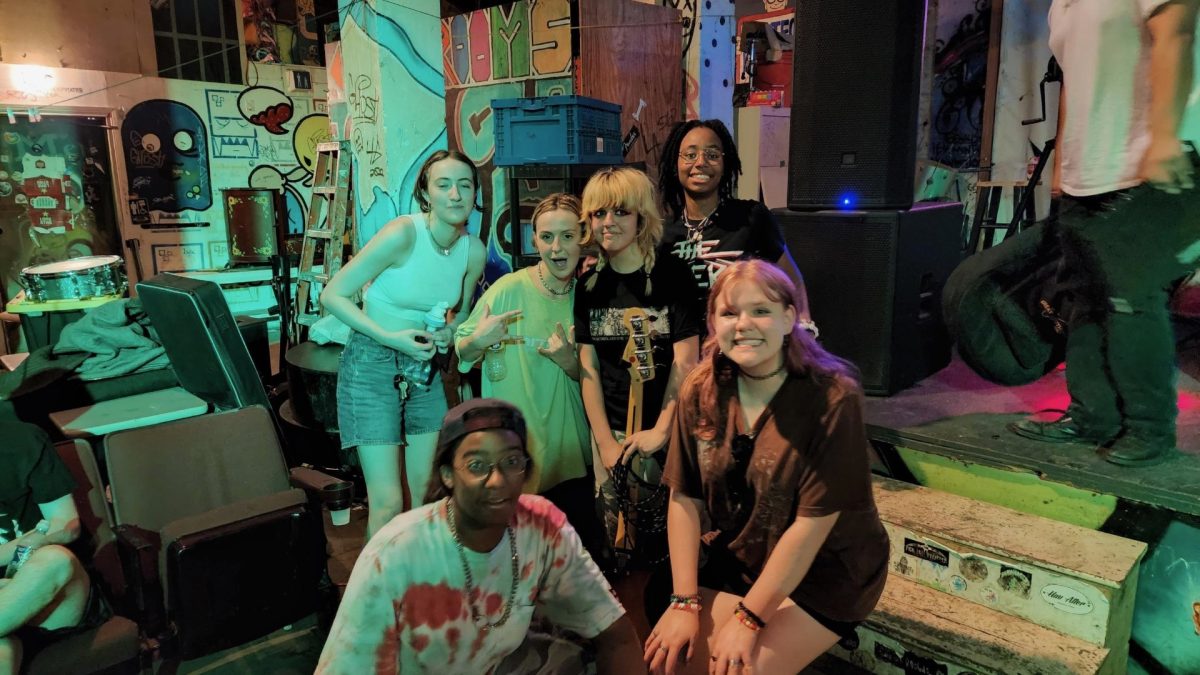














![IN THE SPOTLIGHT: Junior Zalie Mann performs “I Love to Cry at Weddings,” an ensemble piece from the fall musical Sweet Charity, to prospective students during the Fine Arts Showcase on Wednesday, Nov. 8. The showcase is a compilation of performances and demonstrations from each fine arts strand offered at McCallum. This show is put on so that prospective students can see if they are interested in joining an academy or major.
Sweet Charity originally ran the weekends of Sept. 28 and Oct. 8, but made a comeback for the Fine Arts Showcase.
“[Being at the front in the spotlight] is my favorite part of the whole dance, so I was super happy to be on stage performing and smiling at the audience,” Mann said.
Mann performed in both the musical theatre performance and dance excerpt “Ethereal,” a contemporary piece choreographed by the new dance director Terrance Carson, in the showcase. With also being a dance ambassador, Mann got to talk about what MAC dance is, her experience and answer any questions the aspiring arts majors and their parents may have.
Caption by Maya Tackett.](https://bestofsno.com/wp-content/uploads/2024/02/53321803427_47cd17fe70_o-1-1200x800.jpg)
![SPREADING THE JOY: Sophomore Chim Becker poses with sophomores Cozbi Sims and Lou Davidson while manning a table at the Hispanic Heritage treat day during lunch of Sept 28. Becker is a part of the students of color alliance, who put together the activity to raise money for their club.
“It [the stand] was really fun because McCallum has a lot of latino kids,” Becker said. “And I think it was nice that I could share the stuff that I usually just have at home with people who have never tried it before.”
Becker recognizes the importance of celebrating Hispanic heritage at Mac.
“I think its important to celebrate,” Becker said. “Because our culture is awesome and super cool, and everybody should be able to learn about other cultures of the world.”
Caption by JoJo Barnard.](https://bestofsno.com/wp-content/uploads/2024/01/53221601352_4127a81c41_o-1200x675.jpg)





